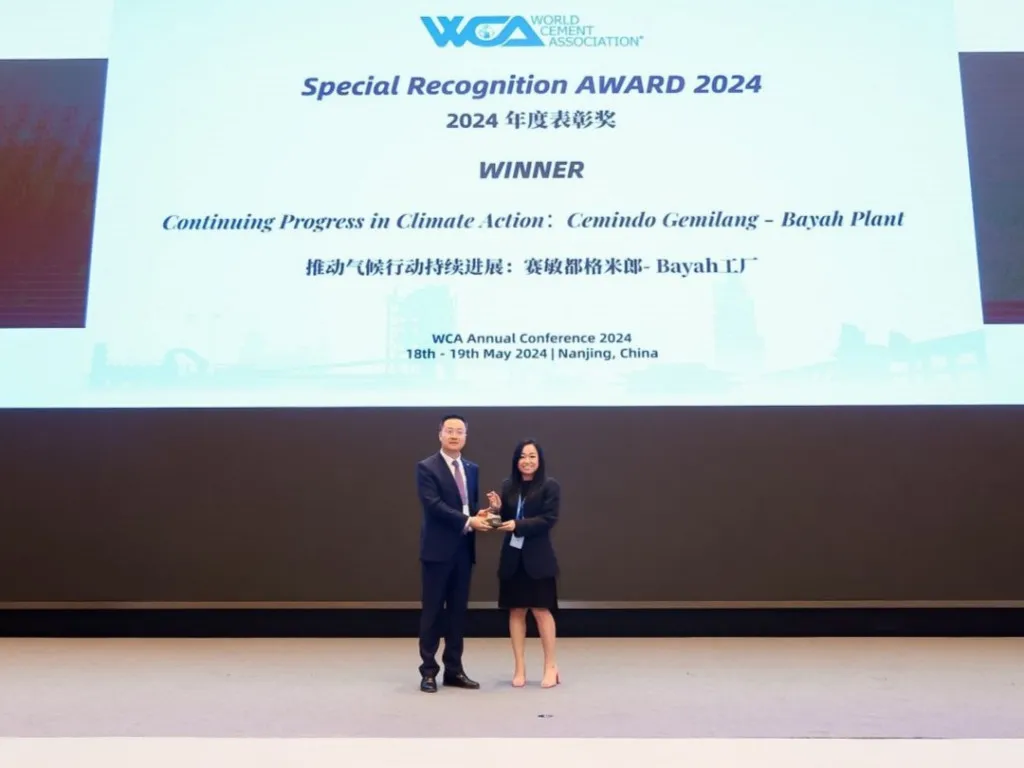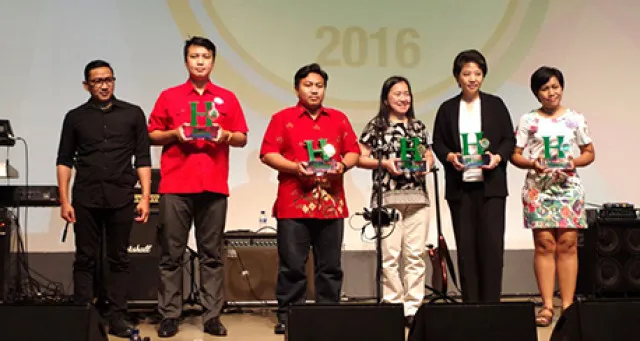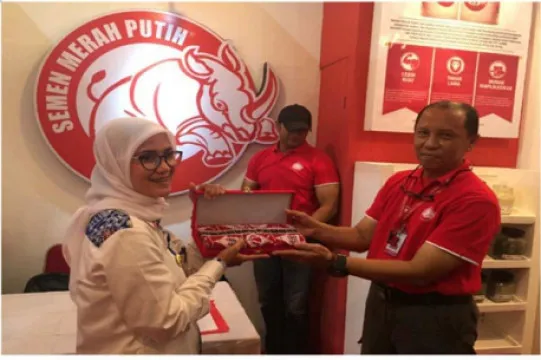Jakarta, 18 Juli 2024 – Sektor konstruksi khususnya industri semen berperan sentral dalam upaya Indonesia mencapai Tujuan Pembangunan Berkelanjutan (SDG) dan target emisi nol karbon pada tahun 2060. Pada tahun 2020, sektor industri, termasuk semen, berkontribusi sekitar 22% terhadap total emisi gas rumah kaca di Indonesia. Pemerintah telah menetapkan peta jalan yang ambisius, dengan komitmen untuk mencapai emisi nol karbon pada 2060 dan target penurunan emisi antara 29% hingga 41% pada tahun 2030 dari level tahun 2010.
Langkah-langkah ini termasuk peningkatan penggunaan energi terbarukan seperti tenaga surya, angin, dan biomassa, serta penggunaan bahan bakar alternatif dalam industri semen untuk mengurangi ketergantungan pada bahan bakar fosil. Sektor konstruksi, yang sangat bergantung pada semen sebagai bahan pokok, juga berperan dalam mendorong praktik pembangunan berkelanjutan dengan memanfaatkan material ramah lingkungan dan teknologi konstruksi inovatif. Kolaborasi antara pemerintah, sektor swasta, dan masyarakat penting dalam menjalankan rencana ini guna mencapai masa depan yang lebih hijau dan berkelanjutan untuk Indonesia.
PT Cemindo Gemilang Tbk, produsen Semen Merah Putih telah lama menempatkan keberlanjutan lingkungan sebagai prioritas utama dalam operasionalnya, mulai dari pemilihan bahan baku hingga proses produksi dan distribusi. Menyadari sepenuhnya bahwa industri semen memiliki dampak lingkungan yang signifikan, Semen Merah Putih berkomitmen untuk menjadi pemimpin dalam transformasi industri menuju praktek produksi yang lebih berkelanjutan .
Oza Guswara, GM Sales & Marketing PT Cemindo Gemilang Tbk, menegaskan bahwa Semen Merah Putih berkomitmen menjadi perusahaan global yang mengedepankan inovasi dan keunggulan bahan material bangunan. "Semen Merah Putih mengutamakan praktik produksi yang bertanggung jawab sosial dan lingkungan, serta meningkatkan kualitas HSSE untuk manfaat berkelanjutan bagi masyarakat dan lingkungan. Secara strategis, kami terus mengoptimalkan inovasi dan teknologi dengan penggunaan bahan bakar alternatif dalam proses produksi," ujar Oza.
Melalui investasi dalam teknologi ramah lingkungan dan praktik berkelanjutan, pabrik Semen Merah Putih di Bayah berhasil mengurangi emisi CO2 spesifik bersih sebesar 5% pada tahun 2023 dibandingkan 2022, dari 633 kg menjadi 603 kg CO2 per ton setara semen. Artinya, setiap ton semen yang diproduksi pada 2023 mengeluarkan 30 kg CO2 lebih sedikit dibandingkan tahun sebelumnya.
Oza menjelaskan guna menunjukkan komitmen Semen Merah Putih untuk mengurangi ketergantungan pada bahan bakar fosil dan beralih ke sumber energi yang lebih berkelanjutan, pabrik Bayah juga menambah instalasi Alternative Fuels Feeding (AF) pada kalsiner di Kiln guna meningkatkan Thermal Substitution Rate (TSR) hingga 5% pada tahun 2024. Peningkatan ini diharapkan dapat menghasilkan pengurangan emisi CO2 sebesar 70.000 ton, karena lebih banyak energi yang digunakan berasal dari bahan bakar alternatif seperti biomassa atau RDF, menggantikan bahan bakar fosil konvensional seperti batu bara atau gas alam dalam proses produksi semen. Dari sisi energi, penggunaan Waste Heat Recovery System (WHRS) juga dioptimalkan mengubah panas buangan menjadi listrik, menghasilkan 85.702 MWh pada 2023.
"Semen Merah Putih telah menunjukkan komitmen yang kuat dalam mengurangi ketergantungan pada bahan bakar fosil dan beralih ke sumber energi yang lebih berkelanjutan. Langkah ini diharapkan dapat mengurangi emisi CO2, sambil mengoptimalkan penggunaan Waste Heat Recovery System (WHRS) untuk menghasilkan energi listrik yang ramah lingkungan. Perusahaan juga terus berinovasi dalam pengembangan produk, dengan fokus pada pengurangan penggunaan klinker untuk meningkatkan efisiensi dan keberlanjutan operasional." tambah Oza.
Selain itu, investasi juga telah dilakukan untuk mengganti truk dan forklift diesel dengan listrik, guna mengurangi emisi CO2, tambah Oza.
Inisiatif pengurangan emisi CO2 yang dilakukan Semen Merah Putih telah mendapat pengakuan internasional dari World Cement Association pada WCA World Annual Conference 2024. Semen Merah Putih meraih penghargaan yang kedua kalinya dengan kategori "Continuing Progress in Climate Actions" dari World Cement Association (WCA) pada Mei 2024. Penghargaan ini merupakan kontribusi signifikan sebagai bukti nyata komitmen Semen Merah Putih, dalam mengurangi biaya dan emisi karbon melalui efisiensi energi, penggunaan bahan bakar alternatif, dan penurunan faktor klinker serta praktik keberlanjutan yang telah dilakukan
Surindro Kalbu Adi, Commercial & Logistic Director PT Cemindo Gemilang Tbk, menyatakan kebanggaannya atas penghargaan ini, mengakui kerja keras seluruh tim dalam mewujudkan nilai-nilai keberlanjutan. "Penghargaan WCA Climate Action Award 2024 yang diterima oleh pabrik Bayah merupakan pengakuan atas upaya berkelanjutan Semen Merah Putih dalam mewujudkan visi keberlanjutannya. Ini juga menjadi motivasi bagi Semen Merah Putih untuk terus berinovasi dan meningkatkan kinerja lingkungannya di masa depan," ujar Surindro.
Penghargaan ini menandai langkah penting Semen Merah Putih menuju masa depan yang lebih hijau. Mereka berkomitmen untuk terus berinvestasi dalam teknologi ramah lingkungan, meningkatkan efisiensi operasional, dan menjalin kemitraan demi mencapai tujuan keberlanjutannya. "Tantangan lingkungan yang dihadapi saat ini sangat kompleks, namun dengan kolaborasi, inovasi, dan komitmen yang kuat, Semen Merah Putih yakin dapat menciptakan masa depan yang lebih berkelanjutan bagi industri semen dan lingkungan hidup," lanjut Surindro.
Semen Merah Putih bertekad mengurangi emisi karbon melalui bahan bakar alternatif, peningkatan efisiensi energi, dan produk ramah lingkungan. Investasi dalam teknologi modern akan meningkatkan efisiensi energi di seluruh operasi pabrik. "Praktik-praktik berkelanjutan seperti pengelolaan limbah yang bertanggung jawab, penggunaan kendaraan listrik, dan program penghijauan akan terus diterapkan dan ditingkatkan. Kami juga akan terus melibatkan masyarakat sekitar dalam upaya keberlanjutan, termasuk melalui program pemberdayaan masyarakat, pendidikan, dan kesehatan," pungkas Surindro.
Semen Merah Putih menyadari pentingnya kolaborasi dalam mengatasi tantangan lingkungan. Mereka akan terus bekerja sama dengan pemerintah, organisasi non-pemerintah, dan pihak lain untuk mencari solusi bersama demi keberlanjutan. Melalui berbagai inovasi dan investasi, perusahaan ini berkomitmen untuk berkontribusi signifikan dalam mengurangi jejak karbon industri semen di Indonesia sebagai tanggung jawab korporat dalam membantu Indonesia mencapai target iklim global.



